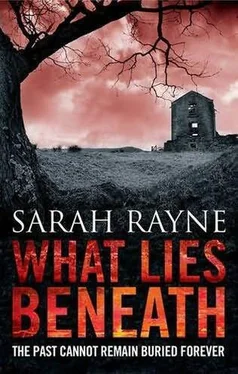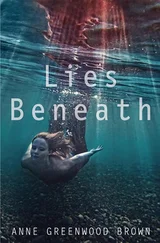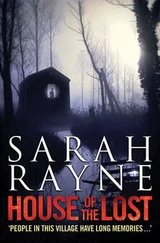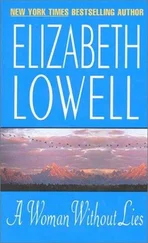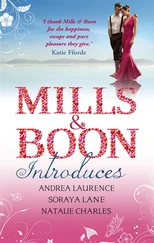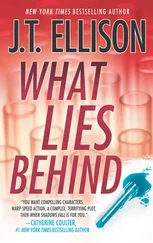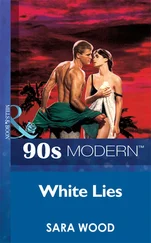‘We thought we’d go further afield if we can,’ said Crispian. ‘Greece, perhaps.’ He watched Colm carefully to see if he accepted this.
Colm said, ‘How interesting. The Greeks are remarkable people when it comes to finance – I might have some notes about that somewhere; I’m sure you’d find them helpful. Come into the study, my dear boy.’
It’s all right, thought Crispian, following Colm’s stoop-shouldered figure across the main hall, into the suite of rooms in which he lived. He believes me. He doesn’t see anything odd in Jamie and I mad-rabbiting across the world.
‘I dare say the notes will be somewhere in this cupboard,’ said Colm, peering round. There was a large photograph of Jamie’s mother on a desk – Crispian had been five when she died, Jamie a year or two younger. He could remember her only very dimly, and he did not think Jamie remembered her at all. But he had always liked the photograph, which showed her as dark-haired and attractive, and he liked her name, which was Fay. As a child he had thought it a name for a princess or a fairy creature from one of the old legends. His own mother had never seemed to like Fay very much; she had once said Fay was fanciful and impractical and a bit of a dreamer. ‘An unsuitable wife for any man,’ she had said dismissively, ‘and especially for Colm.’ Crispian did not think Fay’s death had inflicted a particularly deep wound either on Colm or on Jamie.
‘I was looking into the origins of banking quite recently, as it happens,’ Colm was explaining, ‘with particular emphasis on the Italians, of course. Cadenza, that was our family name generations back. Well, you’ll know that. But I believe I’ve found a link to the Medicis – both families were Florentine bankers, of course, so it wouldn’t be so very unexpected. There was a marriage in the fifteenth century; isn’t that interesting? But we were talking about the Greeks, weren’t we? Perhaps we should have a glass of Madeira while I try to find it all for you… Nonsense, it’s no trouble at all, and I’m sure it would be of interest. If I could find my spectacles…’
He’s Dickensian, thought Crispian, watching Colm peer about him for the truant spectacles. Or he’s even out of Restoration comedy. Not for the first time, he wondered if Colm minded missing out on his place in the Cadence financial empire, and its rewards. But he appeared perfectly happy buried down here in Priors Bramley, writing monographs and little essays, which occasionally appeared in scholarly periodicals. He reported scrupulously to Julius on the manor’s maintenance, sending an account each quarter day. The accounts were as detailed and as precise as those of an Elizabethan household, and Julius usually snorted in semi-derision, paid what had to be paid, then consigned the accounts to the back of a cupboard, never to be looked at again.
The Present
For over fifty years Ella had been able to push the memories to the back of her mind, but now they came pouring back.
The fact that Geranos was so harmful had been played down by the government.
‘But everyone knew it was absolutely lethal’ said Clem, that night at Ella’s house. ‘Geranos had sulphur mustard in it, only nobody said so at the time. That’s why Priors Bramley was called the Poisoned Village at one stage. Didn’t somebody go in there and get horrible chemical burns or something?’
‘I heard that as well,’ said Veronica. ‘And I remember hearing about the sulphur mustard being dangerous. I used to be worried about my mother putting mustard on ham. Listen, I was only eight,’ she said defensively.
‘Sulphur mustard was used in both World Wars, I think,’ said Clem. ‘But then the government stopped it. I can remember my father saying it had some useful qualities, only I can’t remember what they were.’
‘A lot of harmful things do have good properties if they’re used correctly,’ said Veronica, rather unexpectedly. ‘Arsenic does. I remember reading that.’
‘I suppose,’ said Clem, ‘that everything’s got its dark side, hasn’t it?’
Everything’s got its dark side…
Although the three of them had not talked much about what had happened in Cadence Manor that morning, Ella knew they all remembered it.
She had not really taken any notice of the stuff called Geranos in the beginning; it was just a word, something a plane had dropped on the village, a complicated science thing that the grown-ups probably understood. It was the man who lay at the core of all her nightmares: the man whose face was not quite right, and who had poured out the music in St Anselm’s church and sobbed in that dreadful fashion. Afterwards she dreamed about him lying in the deserted manor house, staring upwards with sightless eyes because nobody had closed them. But she had tried not to think about it, because she would never see him again. She would never go back to Priors Bramley or Cadence Manor.
But she had. One week later she had gone back to Priors Bramley. And afterwards she understood why it came to be called the Poisoned Village.
It had been Saturday afternoon, and Ella had been helping her mother make cakes. As they were putting away the mixing bowls, her mother suddenly said, ‘Ella, where’s your watch? Did you take it off to wash up? Where did you put it?’
Ella stared at her and felt a sickening jolt of panic. The watch, the gold watch that had marked her tenth birthday and that Mum had worked all those extra hours to buy. For a moment she was no longer in the bright kitchen, but in Priors Bramley just seven days ago. She had looked at her watch several times that morning to make sure they would leave before the plane came at midday, and also because she was proud of having such a grown-up birthday present. And then later, seated on Mordwich Bank, watching the plane come over, the watch had no longer been on her wrist. She had not noticed at the time, but standing in the kitchen with the warm scent of cakes baking, she saw her bare wrist as she, Clem and Veronica fed their unwanted sandwiches to the birds.
‘Ella, what’s the matter?’
‘I think,’ said Ella, starting to cry, ‘that I’ve lost it.’
‘Oh, you careless girl. That was a very expensive watch.’
‘I know,’ said Ella, crying harder.
‘Well, try to think when you last had it. We might be able to track it down. There’s no point in crying.’
But Ella could not stop sobbing, and the story of what had happened in Cadence Manor was tumbling out. It was a bit like being sick – you tried to keep it in but it came out of you anyway. The story of how they had gone into Priors Bramley came out like being very sick. She had not meant to tell the part about the man, but she could not help it. Mum did not speak; she simply sat there at the kitchen table, listening.
‘… And when we got up to Mordwich Bank, my watch wasn’t on my wrist any more.’ Ella stopped speaking and she managed to stop crying. She felt empty but oddly better, as if she really had been sick, but she had no idea what was going to happen now. Mum was frowning, not an angry frown, but as if she was trying to think. Ella waited, and after a moment Mum squared her shoulders in the way she did when she was about to do something important.
She said, ‘There’s only one thing for it, Ella. We’ll have to go out there and find your watch. No one need know – we can be there and back without anyone seeing us.’
‘But we can’t,’ said Ella, horrified. ‘It’s all closed up. No one’s allowed in.’
‘I can’t help that. That watch had your initials on it, and the date of your birthday. If that man’s body is found and your watch is with him—’
‘They’d think I killed him?’
Читать дальше
